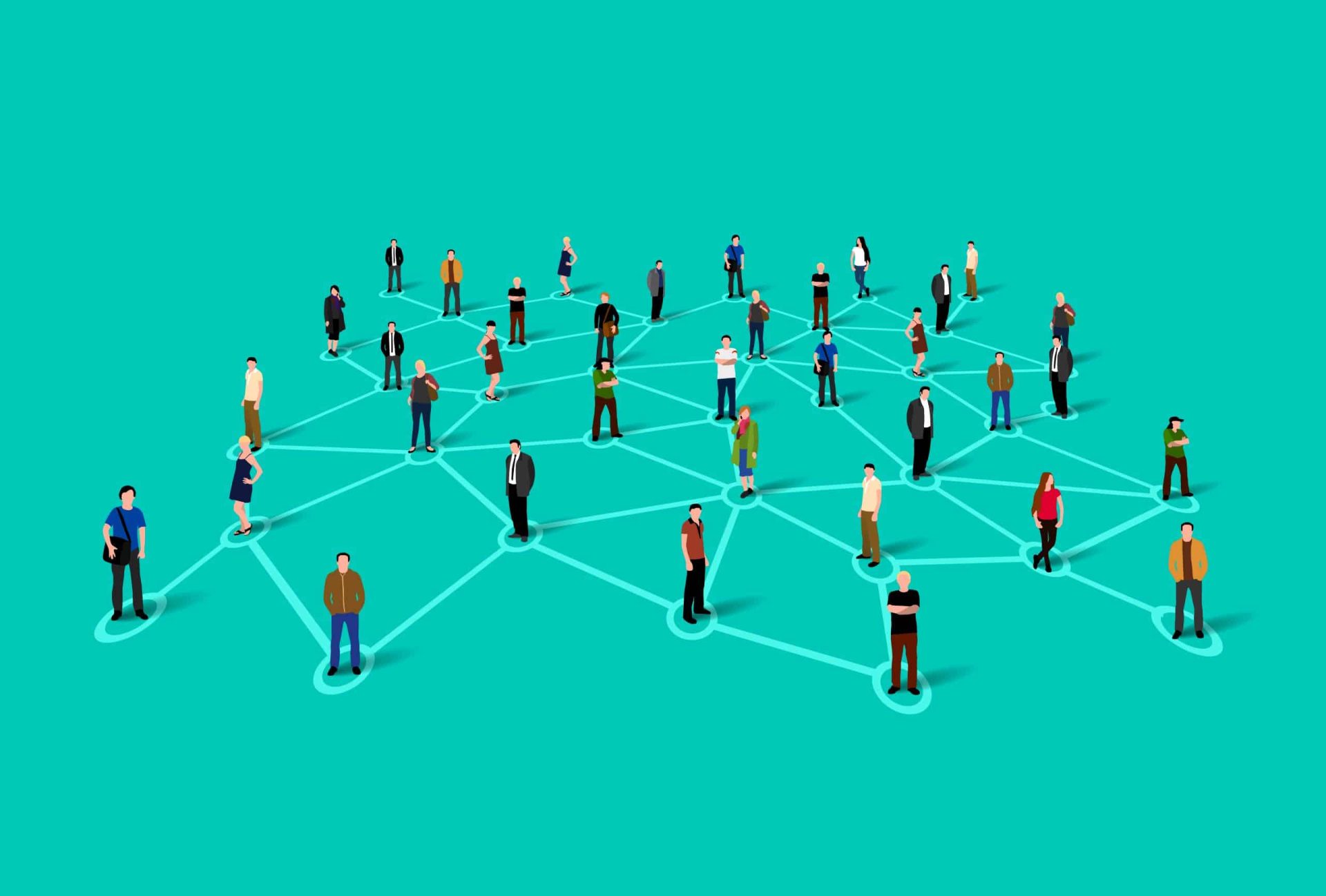In March 2023 I decided to embark on a crazy adventure. We launched THE CEO ELEVATION CIRCLE, a community of practice in leadership development and career acceleration for exceptional women who aim to grow into the C-Suite and to become the next CEO. Little did I know then how much I will learn about myself, about us, human beings and women, and about social behaviors thanks to this wonderful project.
First of all: personal disclaimer. I believe the word community is currently being thrown around with the same shamelessness as the word coaching – or team, for that matter. Basically, if a handful of people congregate around a person, idea, or location – bang! We have a community.
There is nothing further from the truth.
A real community is only as strong as people’s feeling of belonging to it through its mission and actions, and as the strength of the inter-connections among its members. If the community leaders fail to activate these mechanisms – real belonging and inter-connections – you don’t have a community. You have a misused label at best.
Therefore, in my good tradition of doing things properly if I decided to do them at all, in early 2023 I embarked on a journey to study how real, effective, impactful online communities can be built.
I was painfully aware of the fact that the online environment had a major nemesis: proximity bias, which states that we allocate an attribute of quality and safety to something that lies in our physical proximity.
With the push for return-to-office mandates, proximity bias got a powerful ally – corporate managers. So, this was a steep uphill battle to carry.
But I also knew that if I wanted to create a truly pan-European project that will elevate women from all over the world who would like to build a top leadership career in Europe, we needed a powerful online platform that would be available to everyone 24/7, asynchronously, and based on genuine quality contacts and connection.
What I found next surprised and saddened me. It also provided me with a lot of ground for self-reflection and it informed all our leadership development programs.
WHAT I DISCOVERED WHEN WE LAUNCHED OUR ONLINE COMMUNITY THE CEO ELEVATION CIRCLE
In a nutshell: our social behaviors are often appalling.
Here are a few examples:
- We enter a community, but we never bother to greet. In a village, you would get a punch in the face for doing that.
- We enter a community, but we never bother to fill in our profile. That’s like going to the church on Sunday naked.
- We enter a community and immediately ask for favors. In my village, they would laugh their backs off if someone dared to do that.
- We enter a community to lurk in the background, steal ideas, then run away. Yup, community algorithms allow managers to see who’s doing what in an online community. And yup, again, in a real village they would pull you out of the shadows, ask you about your intentions, then punch you in the face if you aimed to steal.
- We ghost, then we find excuses for our poor behavior. That’s the equivalent of a neighbor greeting you several times, and you turning your head only after several greetings to say: “Oh, I didn’t hear you.”
And many, many more.
As you can see, my inner village girl got activated when I talk about community. My village of origin is the first true community I have ever experienced and thank God for that because now I have a real benchmark to compare.
SO, WHY DO WE BEHAVE LIKE NEANDERTHALS ONLINE?
This is my speculation, which is not grounded in any particular research or data: I believe we behave the way we do online because so far we got away with it. And we got away with it because:
- Companies never bothered to invest in people training when they brought in a new digital platform (anyone who never attended email communications training or meeting facilitation training, anywhere?).
- Company cultures suck. People get away with really toxic social behaviors, but still – no consequences.
- Social media made us reactive, wild, and reckless. If there is something that ate into the social fabric of our world, it’s – paradoxically – social media. A wonderful tool when properly used, social media can also be abused because of their lack of accountability in managing their content, and thus the tone of conversation in the agora. Therefore, literally any idiot can post anything, regardless of how harmful or damaging it is, and social media owners barely lift their heads to implement some simulation of content proofing only when the law starts putting a knife at their throats.
- The Covid pandemic. Last but not least, the Covid pandemic threw many people into an online remote-first world for the first time. As such, many people took a taste of the great social global for the first time under traumatic conditions, and now they associate online remote work with trauma.
So, we have a complexity of causes leading to poor online behaviors. But what does that mean for you, the CEO?
HOW THE VANISHING SOCIAL FABRIC IMPACTS YOU, THE CEO, AND WHAT TO DO ABOUT IT
There are two layers where you, the CEO, and your leadership potential could be impacted by the vanishing social fabric that is currently taking punches from all sides.
First, it’s the personal level. If you engage in the same sort of reckless social behavior as other people who have never had the chance to study or to learn proper social etiquette, you will come across as reactive, unhinged, and, ultimately, untrustworthy. No rational shareholders will dare to entrust you with their company. This is how you can hurt your trustworthiness and career prospects.
Second, it’s social. May you like it or not, you do become a role model when you grow into top leadership. People will look up to you and they will copy your behaviors. If you ghost, they will ghost. If you lurk in the background with your camera off during meetings with no explanation, people will also withdraw in the shadows and stop communicating.
As the leader, you set the tone of the culture in your organization. What you can do is to engage in mapping the toxic social behaviors present in your company and to provide alternatives for positive change.
By doing this, you do yourself, your organization, and our world a massive favor. People who learn that ghosting is toxic at work won’t continue ghosting in their personal lives. People who understand they need to show up on camera to drive deeper relationships online will do this in their teams, too. People who understand the value of punctuality and hard stops online will act with more integrity inside and outside of your organization.
By paying more attention to your people’s social behaviors online you can drive massive positive transformation in our world. It’s true that your company is not a community – the relationships within your organization are defined by a paid employment contract, which makes the relationship transactional. But nothing prevents you from actually building a community in and around your organization. Nurture your people’s sense of belonging and they will stay and gravitate around you long after their employment mandates are over. This is the power of community and you, too, could leverage it for the greater good of your business – and our world.



